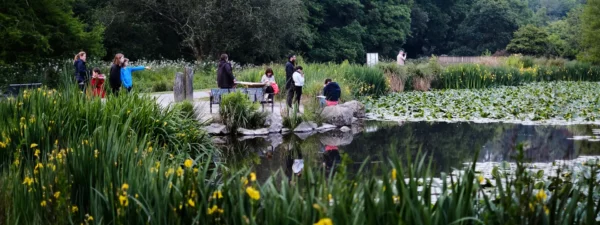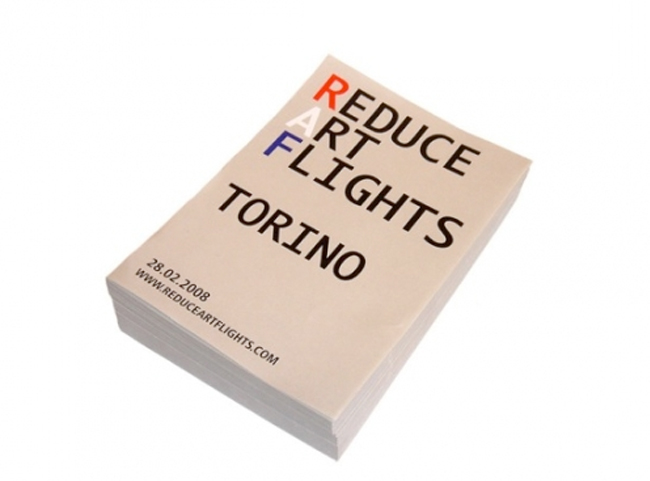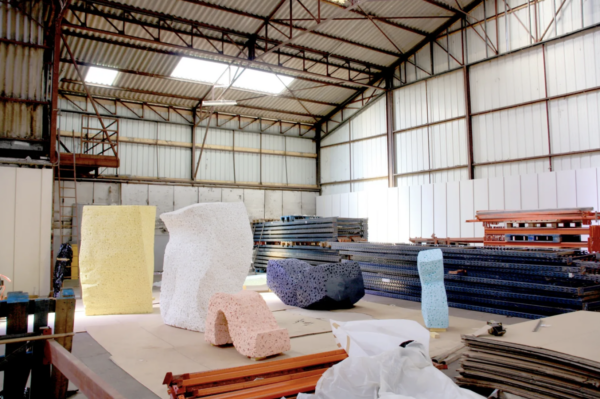
Appel à organisation – Fête de la Nature 2026
Du 20 au 25 mai 2026, la Fête de la Nature célèbrera sa 20ᵉ édition, marquant deux décennies d’actions partout…

RAF / Reduce Art Flights is a campaign which upholds that the art world – artists, curators, critics, gallerists, collectors, museum directors, etc. – could or should diminish its use of aeroplanes. It was initiated by the artist Gustav Metzger (born 1926, Nuremberg, Germany; lives in London, UK). [1]
This website (formally at www.reduceartflights.com) has been established as a resource for the initiative and as a location for future elaborations of its aims.
The RAF acronym deliberately echoes the Royal Air Force – the aerial warfare branch of the British military – as well as the militant left-wing group known as the Red Army Faction.
The campaign had been mooted by Metzger for a year or so, before being realized as a mass-produced leaflet on the occasion of the artist’s participation in Sculpture Projects Münster in 2007. This leaflet was based on a 1942 Royal Air Force poster that detailed the aerial bombardment of Germany during the Second World War. The project conjoins the historical memory of airborne destruction (Münster was among several cities devastated by air-raids), with Metzger’s ‘ongoing and endless opposition to capitalism’ and his ‘objection to the massive commercial growth of the art industry’ exemplified by the unprecedented art tourism of the 2007 ‘Grand Tour’ (the coincidence of the 52nd Venice Biennial; the five-yearly Documenta 12, Kassel; and the once-a-decade Sculpture Projects Münster itself). [2]
The RAF initiative is neither a work of art, nor an idea over which Metzger claims ownership or leadership. This website (and this text) grows out of the inclusion of the RAF initiative in the exhibition Greenwashing. Environment, Perils, Promises and Perplexities (Fondazione Sandretto Re Rebaudengo, Turin, Italy, 29 February – 18 May 2008). On this occasion the curators were guided by the artist’s advice concerning how the campaign could be extended. ‘RAF Torino’ consisted of the printing of a new version of the leaflet, made available in the galleries and inserted into international mailings in connection with the exhibition, and the distribution and attempted implementation of its inherent request to ‘consider forms of travel and transportation other than flying’ in the process of Greenwashing’s organisation. [3]
Leafleting is one of the most elementary forms of campaigning and propaganda. Somewhat ironically in this context, among its most effective applications in the last century has been through the deployment of aeroplanes to drop leaflets as a form of psychological warfare. The plea to ‘Reduce Art Flights’ – however viable or compelling it may be – does not attempt to address practical means to alleviate art world aviation itself. Instead, Metzger suggests the ‘reduce, reuse, recycle’ mantra of environmentalism be transformed and integrated into a more radical spectrum of consideration of humanity’s destructive potential. With full cognisance that it is ‘a drop in the ocean’, the RAF ‘manifesto’ nevertheless invites voluntary abandonment – a fundamental, personal, bodily rejection of technological instrumentalization and a vehement refusal to participate in the mobility increasingly endemic to the globalized art system. [5]
text by Max Andrews
[1] ‘At last year’s Art Basel I felt that something should or could be done in relation to the flights, both of artists and gallery people, and the transportation of works of art.’ Gustav Metzger quoted in Mark Godfrey, ‘Protest and Survive’, Frieze, Issue 108, Jun-Aug 2007
[2] Ibid.
[3] Gustav Metzger, telephone conversation with Max Andrews, 1 November, 2007.
[4] Gustav Metzger quoted in Mark Godfrey, op. cit.
[5] Ibid.
Du 20 au 25 mai 2026, la Fête de la Nature célèbrera sa 20ᵉ édition, marquant deux décennies d’actions partout…
Dans le cadre de leur programme 2026, La Résidence | Le Tremblay s’associe à Les Dominicaines – Centre d’art et…
Septentrionales est un programme annuel de résidences itinérantes de recherche et d’exploration artistique, ouvert à toutes les disciplines, qui invite…

